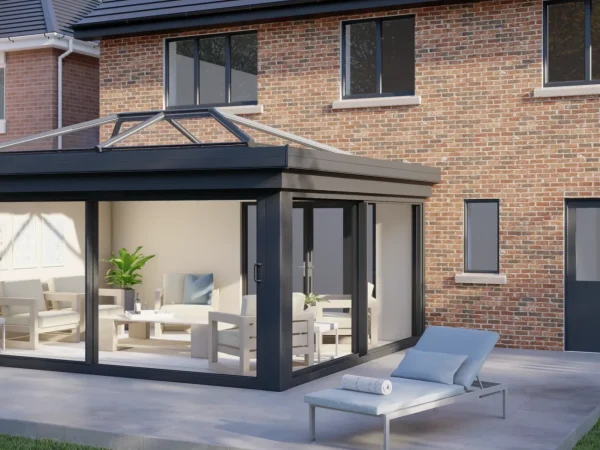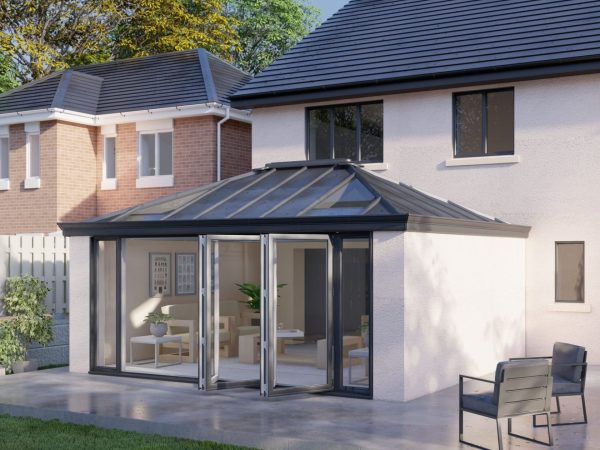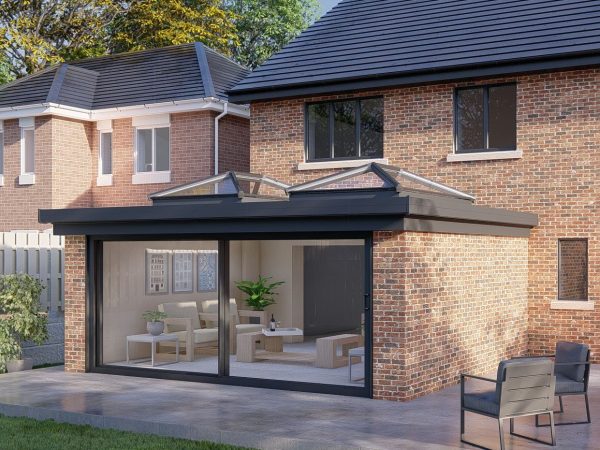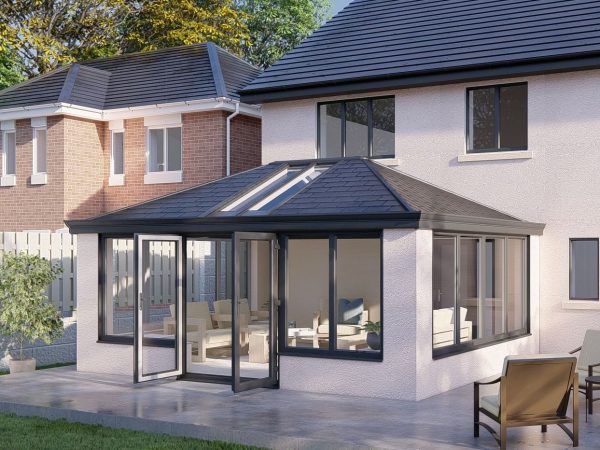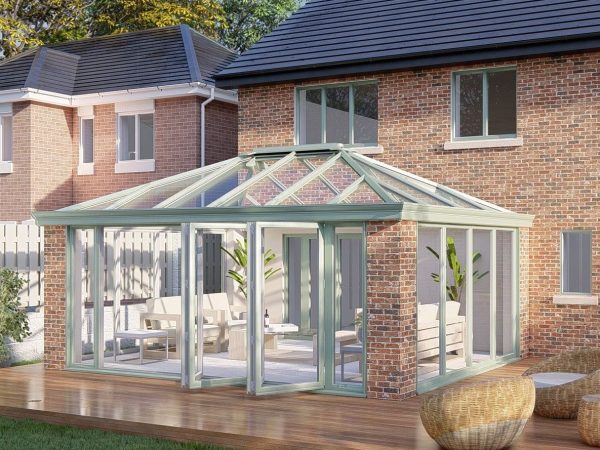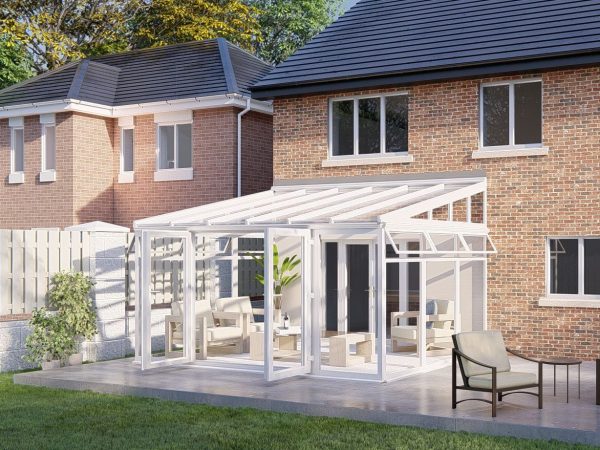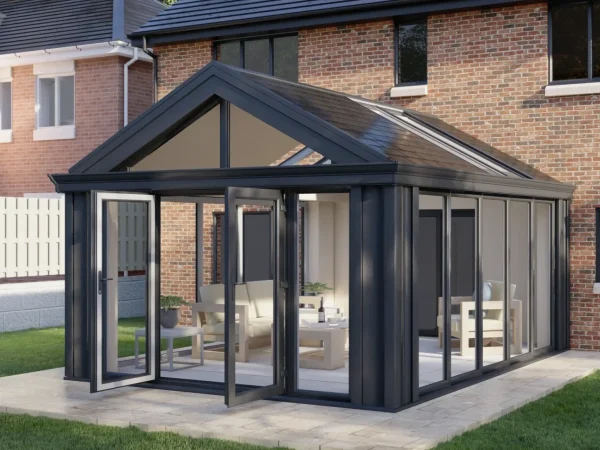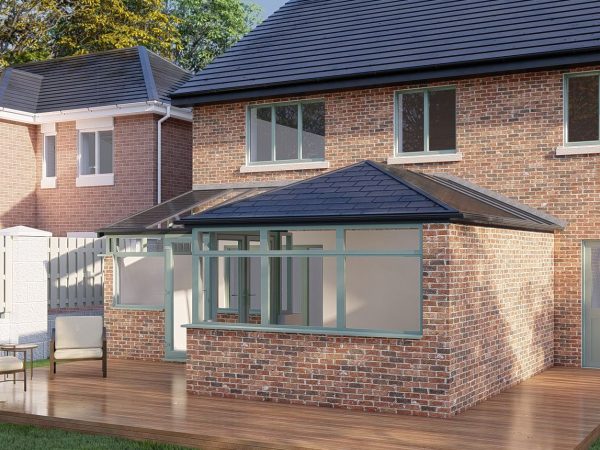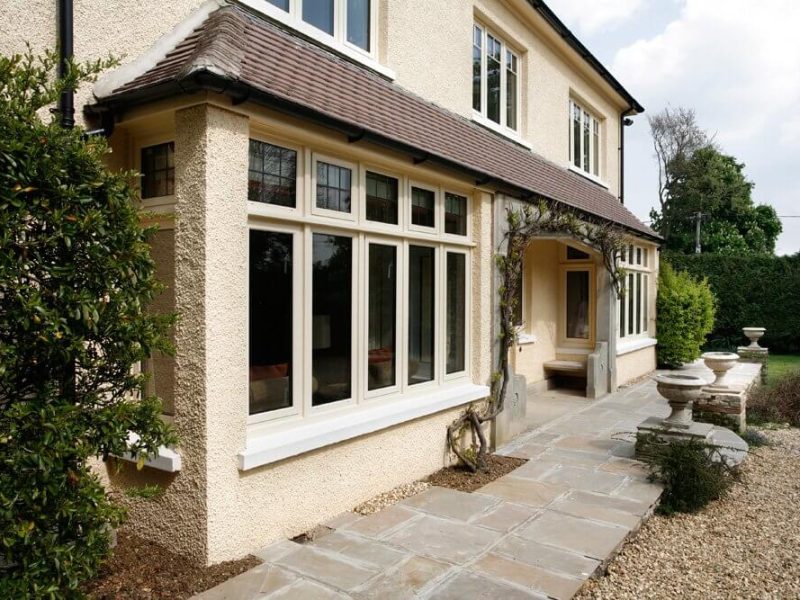What Is Triple Glazing?
Put simply, triple glazing uses three panes of glass instead of one or two. Each pane is separated by an insulating cavity, usually filled with argon gas, which slows down heat transfer and increases efficiency. A low emissivity (low-E) coating can further reflect heat back into the home while still letting natural light in. Compared with traditional double glazing, triple glazing offers significantly lower U values (a measure of heat loss), which means better insulation and reduced energy bills.
Energy Efficiency & Reduced Heat Loss
One of the most important benefits of triple glazing is its outstanding thermal performance. The extra pane of glass and insulating cavity minimise heat escaping in winter and keep interiors cooler in summer.
Triple glazing can achieve U values as low as 0.5 W/m²K, compared with around 1.2 for modern double glazing. This can mean up to 50% greater efficiency for your home, which in turn, can help reduce your heating bills leading to more money in your bank at the end of each month. By keeping your home warmer, triple glazing will help your living space feel more comfortable all year round.
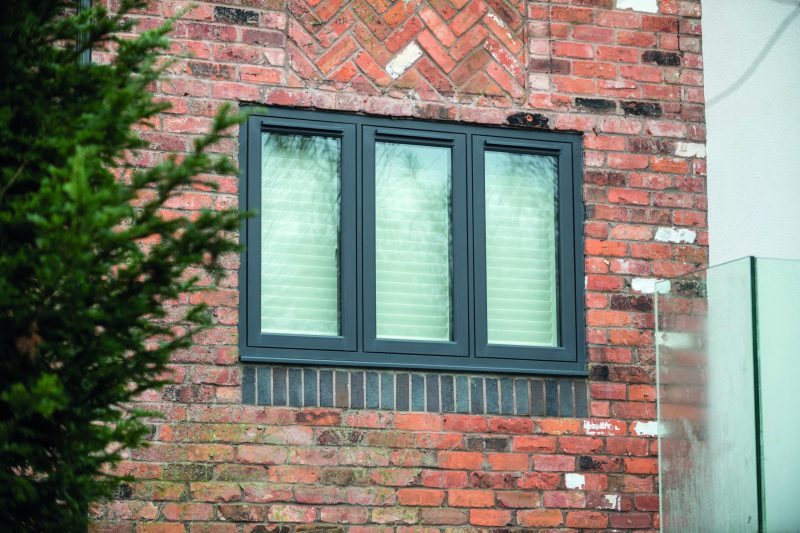
Improved Comfort & Reduced Condensation
Beyond saving money, triple glazing improves everyday living comfort. Homes with poorly insulated glazing often suffer from cold spots near windows, draughts, and condensation forming on glass. Triple glazing combats these issues effectively:
The interior surface of the inner pane stays warmer, which minimises condensation. Rooms feel more comfortable overall, with fewer draughts and no chilly areas near windows.
Conservatories and extensions, in particular, benefit from this increased stability, making them usable all year round rather than just in warmer months.
Cornwall may be known for its peaceful countryside, but homes near busy roads, flight paths, or bustling towns often struggle with outside noise. Triple glazing provides a noticeable improvement in sound insulation: The extra pane of glass helps block and absorb more external noise.
In some cases, triple glazing can reduce noise levels by up to 10 decibels more than double glazing. This makes it particularly valuable for homeowners near main roads, railways, or coastal areas exposed to heavy winds. The result is a calmer, quieter indoor environment that improves sleep quality and day to day wellbeing.
Should you get Triple Glazing
While the benefits of triple glazing are clear, it’s worth considering whether it’s the right choice for every home.
- Climate: Cornwall’s relatively mild winters mean some homeowners may be satisfied with modern double glazing. However, those in exposed coastal locations or noisier areas may see real advantages from triple glazing.
- Weight & installation: Triple-glazed units are heavier and require robust frames. This is rarely an issue for new installations but may require assessment for heritage or older properties.
Rodda & Hocking’s expert team can provide tailored advice to help you decide whether triple glazing is the right option for your home.
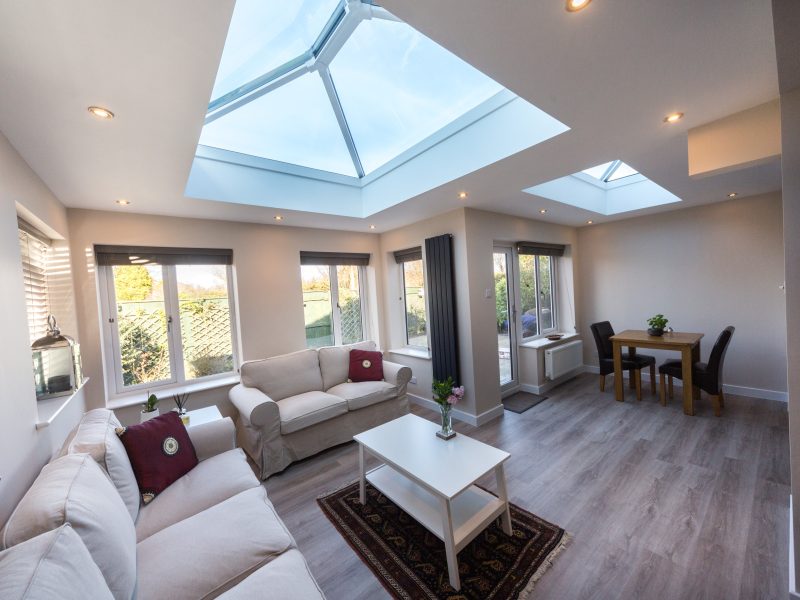 Architect Designed Living Spaces
Architect Designed Living Spaces
 Finance Options Available
Finance Options Available
